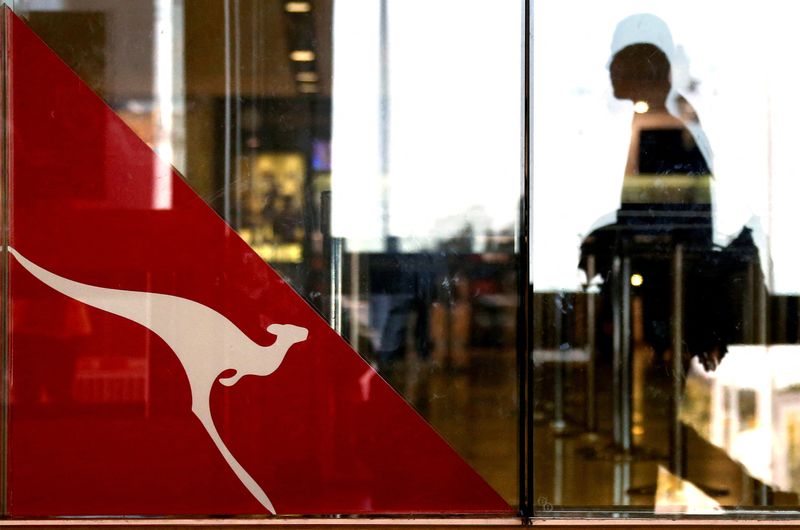By Praveen Menon and Echha Jain
(Reuters) -New Qantas Airways CEO Vanessa Hudson (NYSE:HUD) delivered lower profits in her maiden results on Thursday, but gifted shareholders with a A$400 million ($262.2 million) stock buyback and promised more spending on customers as the Australian flag carrier looks to fix its battered reputation.
Hudson, the airline's first female CEO, took over from the long-serving Alan Joyce at the end of last year after what was one of the company's most reputationally damaging year.
The company is defending a lawsuit by the competition regulator over selling tickets to already-cancelled flights and a court also found that the airline sacked 1,700 ground staff illegally in 2020.
"It's fair to say in the last six months I've been doing a lot more listening than talking," Hudson said in a news conference at the Qantas hangar at Sydney Airport.
"Listening to our customers and listening to you our people, both in aircraft in our airports but also in the investments that we're making to bring the voices of our people in voice of our customer into everything that we do," she said.
Qantas will reveal new interiors for its A220 aircraft, accelerate rollout of Wi-Fi on international flights, upgrade its digital platforms and offer other new loyalty schemes, she said.
Qantas' underlying profit before tax was A$1.25 billion ($785.9 million) for the six months ended Dec. 31, down 12.8% from a record A$1.43 billion in the year earlier when there was a surge in travel after the pandemic.
The profit marginally missed a consensus estimate of A$1.26 billion, according to Jefferies.
"With trading conditions remaining strong and the strength of the balance sheet to fund buy-backs and higher capex, Qantas remains in a far stronger position than that implied in the current share price multiple," said Anthony Moulder, Equity Analyst at Jefferies.
Qantas trading positively, up as much as 1.8% in early trade.
FARES NORMALISING
Qantas said delays in delivering the Airbus A350s will affect its Project Sunrise, the high-profile plan for the world's longest-ever non-stop flights between Sydney and London.
Air New Zealand, which also posed a 38% drop in earnings on Thursday from easing travel demand and rising costs, added that Boeing (NYSE:BA)'s delay in delivering 787 Dreamliners will impact its operations.
Hudson said the decline in first-half earnings was due to fares and capacity normalising.
Fares fell more than 10% since peaking in late 2022. Lower fares contributed to a fall in Qantas' revenue per available seat kilometre, which had around a A$600 million impact on the company's bottom-line.
But travel demand this year remains strong across all sectors, Hudson said, with leisure continuing to lead and business travel now approaching pre-COVID levels.
The airline was slammed for high cancellation rates during the peak travel month of December last year, especially with its budget arm JetStar.
Hudson said the cancellations were due to weather events that were out of the airline's control.
"Qantas is the most on-time performed carrier of the last 12 months, so we are doing much better than our competitors," Hudson said.
"But that's not our benchmark. Our benchmark is to lift to where we were before COVID and to actually get better and beyond that, and to do that consistently."

($1 = 1.5270 Australian dollars)
($1 = 1.5253 Australian dollars)